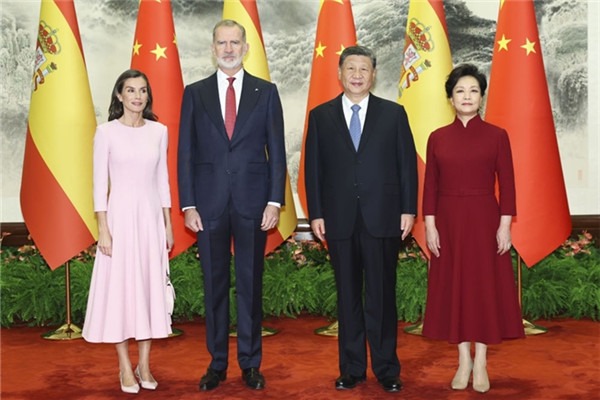Media urged to harness technology
Outlets encouraged to break away from traditional paths, enhance services


China's mainstream media outlets should properly utilize new technologies to enhance efficiency and deliver better news content and services, while maintaining the authenticity of news and credibility of media, experts said at a conference held on Wednesday in Changsha, Hunan province.
As the systematic reform of mainstream media deepens, technology is playing an increasingly pivotal role in news production, presenting both opportunities and challenges, officials, media administrators and journalists said at the 2025 China New Media Conference.
In a keynote speech, Mo Gaoyi, deputy head of the Publicity Department of the Communist Party of China Central Committee and director of the State Council Information Office, said that the media industry has always been highly sensitive and responsive to technological advancements.
He said mainstream media should seize the new opportunities presented by the technological revolution, represented by artificial intelligence, and actively recognize, adapt to and seek change. The goal is to strive to shape a new pattern of mainstream public opinion.
He also emphasized the need to improve management systems that match the degree of technological application. He called for conducting in-depth interviews and investigations, adhering to meticulous editing and proofreading, and resolutely maintaining the authenticity of news and the credibility of media.
Liu Siyang, vice-president of the All-China Journalists Association, said that media transformation in the era of intelligence must begin with a shift in mindset. He encouraged media outlets to break away from traditional paths and better utilize technology to enhance news and services.
Hosted by the All-China Journalists Association and the Hunan provincial government, the event runs from Tuesday to Thursday, with its opening ceremony and main forum taking place on Wednesday.
The conference showcased a range of cutting-edge technologies related to news production, including an AI model developed by Tencent for music and podcast creation, virtual video production technology from iQIYI, and AI tools for short video creation and editing.
Xu Lijing, deputy editor-in-chief of People's Daily, said that China has a generative AI user base of 510 million, and large AI models are used in every aspect of people's daily life, reshaping the media landscape.
To secure a competitive edge in the future, she said, media outlets must adopt a forward-thinking approach in designing new media frameworks.
At the event, a human journalist, a robot and an AI digital employee jointly reported an earthquake event as a stage performance, showing their relationship is not about competition, but collaboration.
Hu Chuyun, a journalist from Henan Daily who attended the conference, expressed confidence that AI would not replace journalists. Instead, she viewed technologies including AI as powerful tools in journalism, like "magic pencils".
"But we are the ones who use the pencils to write stories," she said.
Xia Ji and Chen Meiling contributed to this story.





































